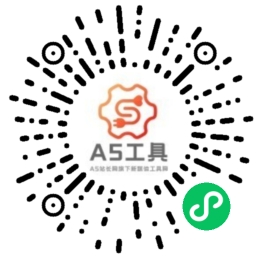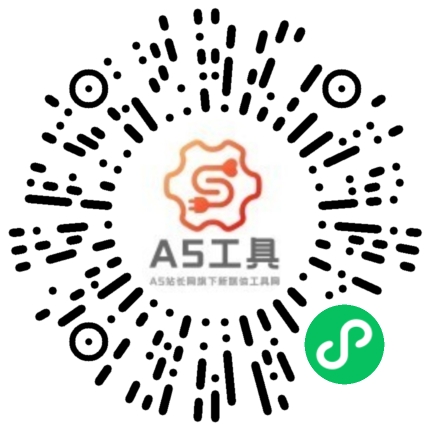声音克隆:科技奇迹还是伦理挑战?探索语音复制的奥秘
2025-07-03 12:40
**Can You Clone My Voice? Unveiling the Intricacies of Voice Cloning Technology**
In an era where technology is advancing at a breakneck pace, the question "Can you clone my voice?" has become more than just a figment of science fiction. It's a legitimate inquiry that teeters on the edge of what's possible today. But what does voice cloning entail, and how close are we to perfecting this fascinating technology?
Voice cloning, in its essence, involves creating a synthetic replica of an individual's voice that can mimic their speech patterns, tone, and even emotional inflections with remarkable accuracy. Imagine a world where your voice could narrate audiobooks, deliver personalized messages, or even interact with virtual assistants without you having to utter a single word in real-time. It sounds like something out of a futuristic dreamscape, but the reality is far more tangible than you might think.
Consider the strides made in artificial intelligence (AI) and machine learning. Recent studies suggest that AI algorithms have achieved unprecedented levels of sophistication in analyzing and synthesizing speech. For instance, one groundbreaking study revealed that AI-generated voice clones could fool listeners up to 95% of the time in blind listening tests. These statistics underscore the惊人的 progress in making cloned voices indistinguishable from the real thing.
But how does it work? The process typically begins with collecting a substantial amount of audio data from the individual whose voice is to be cloned. This data is then fed into a neural network, which learns to map the unique characteristics of the voice, from pitch and timbre to articulation and prosody. With enough training, the network can generate new speech that sounds eerily similar to the original.
As intriguing as this technology is, it also raises a multitude of ethical and privacy concerns. Imagine if someone cloned your voice to impersonate you in a phone call or a video message. The potential for misuse is vast, prompting experts to call for rigorous regulations and safeguards.
Moreover, the implications for identity theft and fraud are chilling. With voice clones becoming increasingly indistinguishable, verifying someone's identity solely based on their voice could become unreliable. This underscores the need for developing alternative, more secure forms of authentication.
Despite these challenges, the potential applications of voice cloning are vast and varied. From personalized entertainment to assistive technologies for the speech-impaired, the technology holds the promise of transforming how we interact with machines and each other.
So, can you clone my voice? The answer, increasingly, is yes—but with a caveat. While the technology is rapidly advancing, it's crucial to navigate its development with a keen eye on ethics and security. As we stand on the cusp of this voice-cloning revolution, let's ensure we're asking not just if we can, but if we should.
In an era where technology is advancing at a breakneck pace, the question "Can you clone my voice?" has become more than just a figment of science fiction. It's a legitimate inquiry that teeters on the edge of what's possible today. But what does voice cloning entail, and how close are we to perfecting this fascinating technology?
Voice cloning, in its essence, involves creating a synthetic replica of an individual's voice that can mimic their speech patterns, tone, and even emotional inflections with remarkable accuracy. Imagine a world where your voice could narrate audiobooks, deliver personalized messages, or even interact with virtual assistants without you having to utter a single word in real-time. It sounds like something out of a futuristic dreamscape, but the reality is far more tangible than you might think.
Consider the strides made in artificial intelligence (AI) and machine learning. Recent studies suggest that AI algorithms have achieved unprecedented levels of sophistication in analyzing and synthesizing speech. For instance, one groundbreaking study revealed that AI-generated voice clones could fool listeners up to 95% of the time in blind listening tests. These statistics underscore the惊人的 progress in making cloned voices indistinguishable from the real thing.
But how does it work? The process typically begins with collecting a substantial amount of audio data from the individual whose voice is to be cloned. This data is then fed into a neural network, which learns to map the unique characteristics of the voice, from pitch and timbre to articulation and prosody. With enough training, the network can generate new speech that sounds eerily similar to the original.
As intriguing as this technology is, it also raises a multitude of ethical and privacy concerns. Imagine if someone cloned your voice to impersonate you in a phone call or a video message. The potential for misuse is vast, prompting experts to call for rigorous regulations and safeguards.
Moreover, the implications for identity theft and fraud are chilling. With voice clones becoming increasingly indistinguishable, verifying someone's identity solely based on their voice could become unreliable. This underscores the need for developing alternative, more secure forms of authentication.
Despite these challenges, the potential applications of voice cloning are vast and varied. From personalized entertainment to assistive technologies for the speech-impaired, the technology holds the promise of transforming how we interact with machines and each other.
So, can you clone my voice? The answer, increasingly, is yes—but with a caveat. While the technology is rapidly advancing, it's crucial to navigate its development with a keen eye on ethics and security. As we stand on the cusp of this voice-cloning revolution, let's ensure we're asking not just if we can, but if we should.
这篇关于《声音克隆:科技奇迹还是伦理挑战?探索语音复制的奥秘》的文章就介绍到这了,更多新媒体运营相关内容请浏览A5工具以前的文章或继续浏览下面的相关文章,望大家以后多多支持A5工具 - 全媒体工具网!
相关资讯
查看更多
克隆声实时对话:法律红线与道德困境,科技该如何前行?
**克隆别人声音进行实时对话:法律与道德的双重拷问**
在科技日新月异的今天,克隆别人声音进行实时对话的技术已经不再是遥不可及的科幻场景。随着AI技术的飞速发展,语音克隆技术已逐渐走进大众视野,并引...

剪映克隆声音收费:技术创新的代价,用户该何去何从?
**剪映克隆声音收费:创意无限的背后,我们该如何抉择?**
在这个数字化飞速发展的时代,视频编辑软件如同魔法棒,让每个人都能成为自己故事的导演。剪映,作为一款备受欢迎的视频编辑神器,凭借其强大的功能...

声音克隆:从梦想到现实,解锁声线奥秘究竟需耗时多久?
**声音克隆:解锁声线的奥秘,究竟需要多久?**
在这个科技日新月异的时代,声音克隆技术如同一道神秘而迷人的光芒,照亮了我们对声音个性化的无限遐想。你是否曾幻想过,有一天能拥有偶像的磁性嗓音,或是让...

抖音声音克隆:低成本高效能,数十元开启创新配音体验!
**抖音克隆声音:低成本高效能的创新体验**
在数字技术日新月异的今天,抖音等社交平台上的创新功能层出不穷,其中声音克隆技术尤为引人注目。你是否曾好奇,克隆一个独特的声音究竟需要多少成本?随着AI技...

声音克隆新时代:Voicery软件助你秒变配音大师!
**探索声音克隆新纪元:哪款软件能让你轻松变身配音大师?**
在数字创意日新月异的今天,你是否曾幻想过用自己的声音演绎不同角色,却苦恼于声音的局限性?或者,你是否梦想过让已故亲人的声音重现,以独特的...

声音克隆:配音新纪元,哪款软件能95%精准复刻你的声音?
**声音克隆:解锁配音新纪元,哪款软件能引领潮流?**
在数字时代,创意的边界被不断拓宽,配音艺术也迎来了前所未有的革新。你是否曾幻想过,用自己的声音演绎不同角色的精彩对话,或是让已故亲人的声音再次...

克隆声音软件售卖:游走法律边缘,或面临严厉制裁?
**卖克隆声音软件:触碰法律红线的危险游戏?**
在科技日新月异的今天,AI技术以其独特的魅力席卷全球,其中AI声音克隆技术更是以其能以假乱真的效果引发了广泛关注。然而,当这一技术被不法分子用于制作...

假唱录音声音克隆:音乐与科技碰撞,真实与虚幻的边界何在?
**假唱录音声音克隆:音乐与科技的奇妙交汇**
在科技日新月异的今天,你是否曾对舞台上那宛如天籁却又似乎过于完美的歌声产生过一丝疑惑?当明星们在聚光灯下轻启朱唇,流淌出的旋律却如机械般精准无误,我们...





